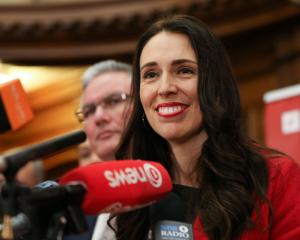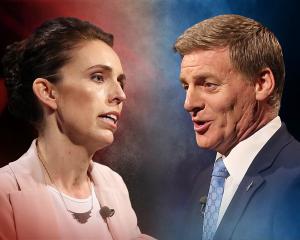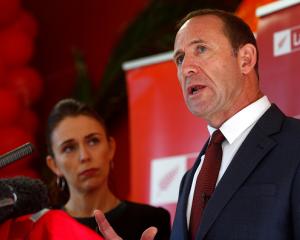The Labour Party seems unable to get over the fact that John Key is wealthy, and it has frequently made attempts to imply or demonstrate that he gained his wealth deviously, and continues to do so.
None of these efforts has succeeded.
Helen Clark tried it when she claimed Mr Key personally profited from the 1993 privatisation of Tranz Rail, because he had been a former director of Bankers Trust, which won a contract to advise the then National government on the sale.
At the relevant time, however, Mr Key was nowhere near the sale; he was operating as a foreign exchange dealer.
Ms Clark may have been badly advised, but this did not slow her attempts to muddy the Prime Minister's credibility, especially in the business and commercial world.
Labour thought it was on to another winner when it sent its then party president, Mike Williams, to Melbourne on a dirt-digging expedition in the hope of yielding election-influencing material supposedly showing unlawful deals in the 1980s, but he came home empty-handed.
The latest attempt has been made by another senior party figure, the Dunedin North MP, Peter Hodgson, who has tried to show the Prime Minister knows what assets are held in his "blind trust", implying that a conflict of interest has or can arise where government policy is concerned, to Mr Key's financial advantage.
That is a serious claim to make where public figures are concerned who hold positions where they can influence policy.
Mr Hodgson's "evidence" - it hardly justifies the description - has been successful to the extent that Mr Key, in responding, seems to have had some knowledge of one asset in particular.
It is no more than that, however: there is no shred of proof that his knowledge - if he had it - has been used to influence policy to his advantage.
The Cabinet Manual's advice to ministers recommends blind trusts be established where personal assets can be placed so as to avoid possible conflicts of interest.
The trust is managed by a third party and the ostensible beneficiary remains ignorant of its dealings - although the minister may know what investments go into a blind trust when it is first established, after that point the trustees have full authority to deal with those investments as they see fit, without reference to the beneficiaries.
Mr Key has insisted that he does not know what is in his Aldgate Trust, created after the 2008 election win, while Mr Hodgson insists the trust has a parallel company whose activities Mr Key can monitor, providing he knows the activity's name.
One of the assets are shares in a vineyard whose owners also include persons linked with a major supermarket company, and Mr Hodgson is trying to link that with the sensitive political issue of additional controls on the sale of liquor through supermarkets.
Mr Key has denied he knows if he owns shares in the vineyard.
Mr Hodgson laid a formal complaint with the Speaker of the House that Mr Key had misled Parliament with his responses to questions about access to his assets, but the Speaker found there was no case to answer.
That appears to be the end of the latest attempt to impugn the Prime Minister for his wealth, but it is unlikely to be the last.
So far, none of the mud Labour has attempted to fling has stuck - at least so far as opinion polls judge the matter.
The most that Labour can hope for is that somewhere in the public mind is lodged the perception of dodgy practices at worst, a cavalier attitude toward the rules at best.
The workers' party has not had a National Party multi-millionaire to contend with for years, especially one brought up in a state house, and it is perhaps understandable that with Mr Key's background as a share trader and money market dealer Labour has wasted no effort in trying to unravel his attitude of sunny success.
But it will need to find a great deal more material to exploit than it has been able to discover so far, while also overcoming public acceptance of the fact that a rich man is likely to have a lot of assets and should not be expected to sell up when he becomes prime minister.
There is also the danger of a significant increase of interest on the part of National in the blind trusts set up by Opposition MPs when they were so recently ministers themselves.
Of course, like Mr Key, they had no idea what was in them or how the assets were managed - or so they expected voters to believe.










